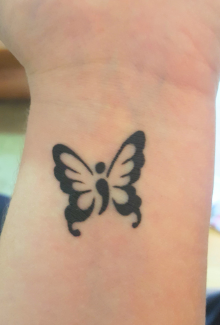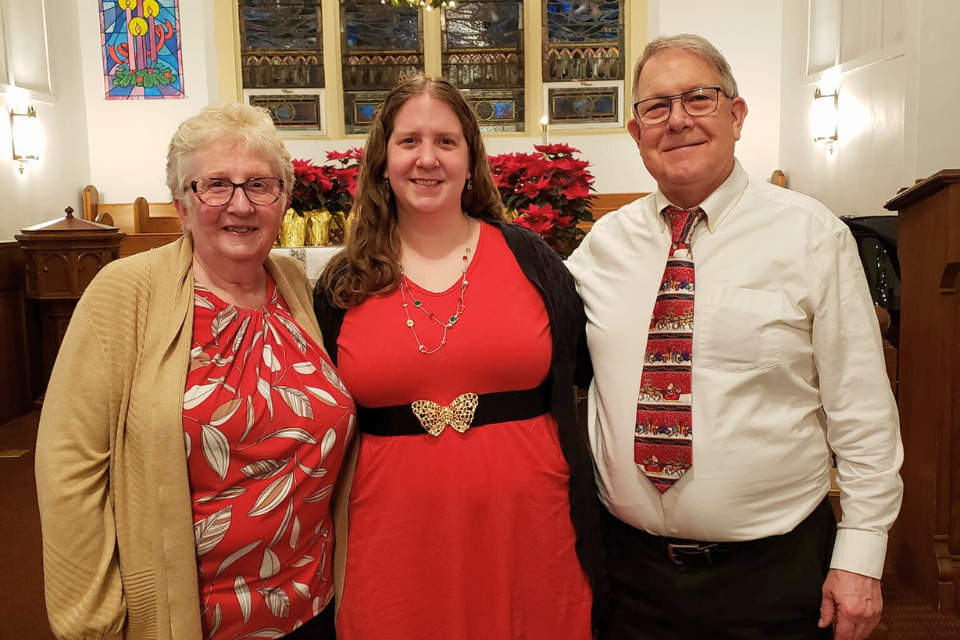Deacon Michelle King shares her story of mental illness and why she commits to fighting for justice so that everyone gets the treatment they need — no matter what.
MICHELLE KING
Deacon, Michigan Conference
“Every day I wake up is a day I never planned on having.” This is how famous TikToker Elyse Myers starts one of her videos. Myers has been open and honest about her struggles with depression and anxiety. Millions of people worldwide can relate to this quote, including me.
One of the reasons I’m so passionate about mental health is because I know what it’s like to have a mental illness. I have struggled with depression and anxiety for most of my life, starting when I was a preteen. In middle school, I experienced suicidal ideation and attempted suicide in eighth grade. I spent the next two weeks in the psychiatric unit of a hospital, getting the treatment I needed.

When I was discharged, I was able to continue my treatment plan of therapy and medication. I’m one of the lucky ones. I survived my suicide attempt, and I had access to life-saving mental health care. As a minor, I was on my parents’ health insurance policy, which covered half of the costs; my parents had to take out a loan to pay for the other half of my hospital stay. They also understood mental illness and knew how important this was.
Throughout my life, I have continued to have access to mental health care. There have been periods when my parents or I have had to pay for that care out of pocket, which was a challenge, but we always made it work. I have never had to worry about not getting the medications I need or not being able to see my psychiatrist or therapist when something is wrong. Not everyone has the same access to the mental health care they need. My story could have ended differently if I hadn’t received the consistent care I needed.
The most recent data shows that 421,000 Michiganders with a mental health condition did not receive treatment. For 38.4% of them, the barrier was cost. Other barriers include stigma around seeking help, a shortage of providers (4,224,425 people in Michigan live in a community that does not have enough mental health professionals), a shortage of available beds for inpatient treatment, long waitlists, and difficulty navigating the complicated health care system.
This is why Advocacy Day on March 13 is focused on asking our Michigan legislators to vote for bills that will increase people’s access to mental health services. We are supporting House Bill (HB) 4707, regarding mental health parity, which would require insurance companies to cover mental health care at the same rates as physical health care. Mental health parity was passed at the federal level in 2008, and HB 4707 clears up some ambiguities in that law. One major piece of HB 4707 is that it requires insurers to cover out-of-network mental health or substance use disorder services if those services are not available in-network. (Read this article to learn more.)
We are also supporting HB 5371 and HB 5372, which codify Certified Community Behavioral Health Clinics (CCBHCs) into state law. Services at CCBHCs are available to anybody, regardless of age, residency, ability to pay, insurance coverage, or severity of the mental illness. This enables people to start receiving care even before they are in a severe mental health crisis. If someone is on a waitlist for a therapist, psychiatrist, or other mental health provider, they can start receiving care at a CCBHC and then transition to that other provider once they’re off the waitlist. This has a huge impact on people’s ability to access mental health services! In 2020, the state of Michigan was approved to become a CCBHC demonstration site, and today, there are 34 clinics serving Michiganders. HB 5371 and HB 5372 ensure these clinics can stay open and increase funding to expand this amazing program! We will also be encouraging legislators to increase mental health care funding in the state budget.
We need your help to get these bills passed! Last year, all the bills we supported related to gun violence prevention were passed, and with your help, we can have the same success this year. Register now to join us at the State Capitol in Lansing on March 13, 2024, to show our elected officials that United Methodists care about mental health and that we believe everyone should be able to get the treatment they need — no matter what.
The fact that not everybody has the same access to mental health care that I do is an injustice. I’m so grateful that I’ve had decent health insurance and parents who understand how vital mental health care is. I wouldn’t be here without them. It breaks my heart that there are so many people struggling with a mental illness who have nowhere to turn, whether it’s because they can’t afford it, there aren’t any available providers in their area, or their condition isn’t severe enough.
In the midst of my depression, I didn’t plan on living this long, but it’s an honor to be able to use my days fighting for justice. In the mental health community, semicolons represent someone saying, “My story isn’t over yet.” On the tenth anniversary of my suicide attempt, I got a tattoo on my wrist of a semicolon butterfly to remind me of how far I’ve come and how much life I have left to live. Elyse Myers ends her video by talking about her life, saying, “I’m so glad I stuck around for it. It’s worth sticking around for, I promise.” I’m glad I stuck around too. It really is worth it.
Last Updated on February 6, 2024


